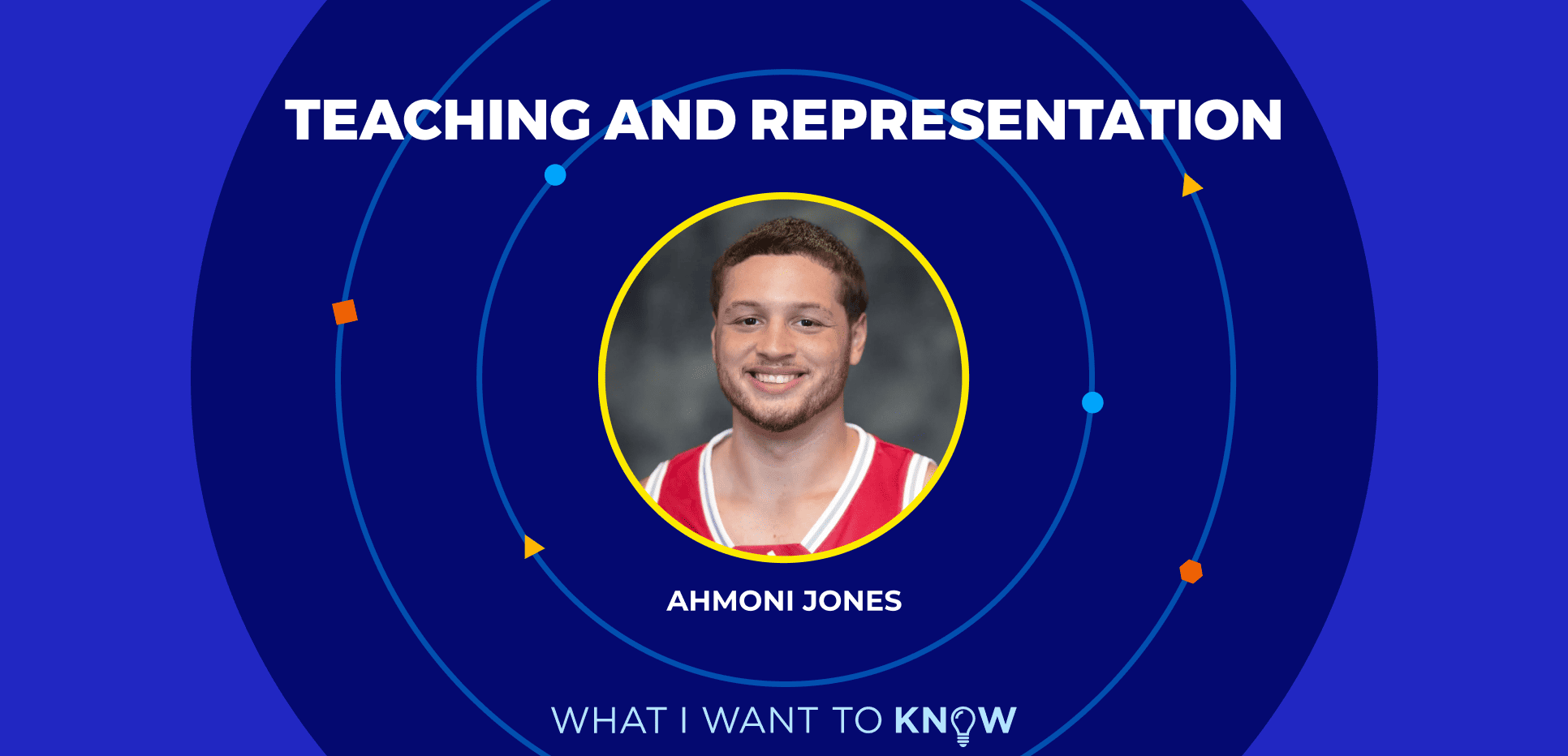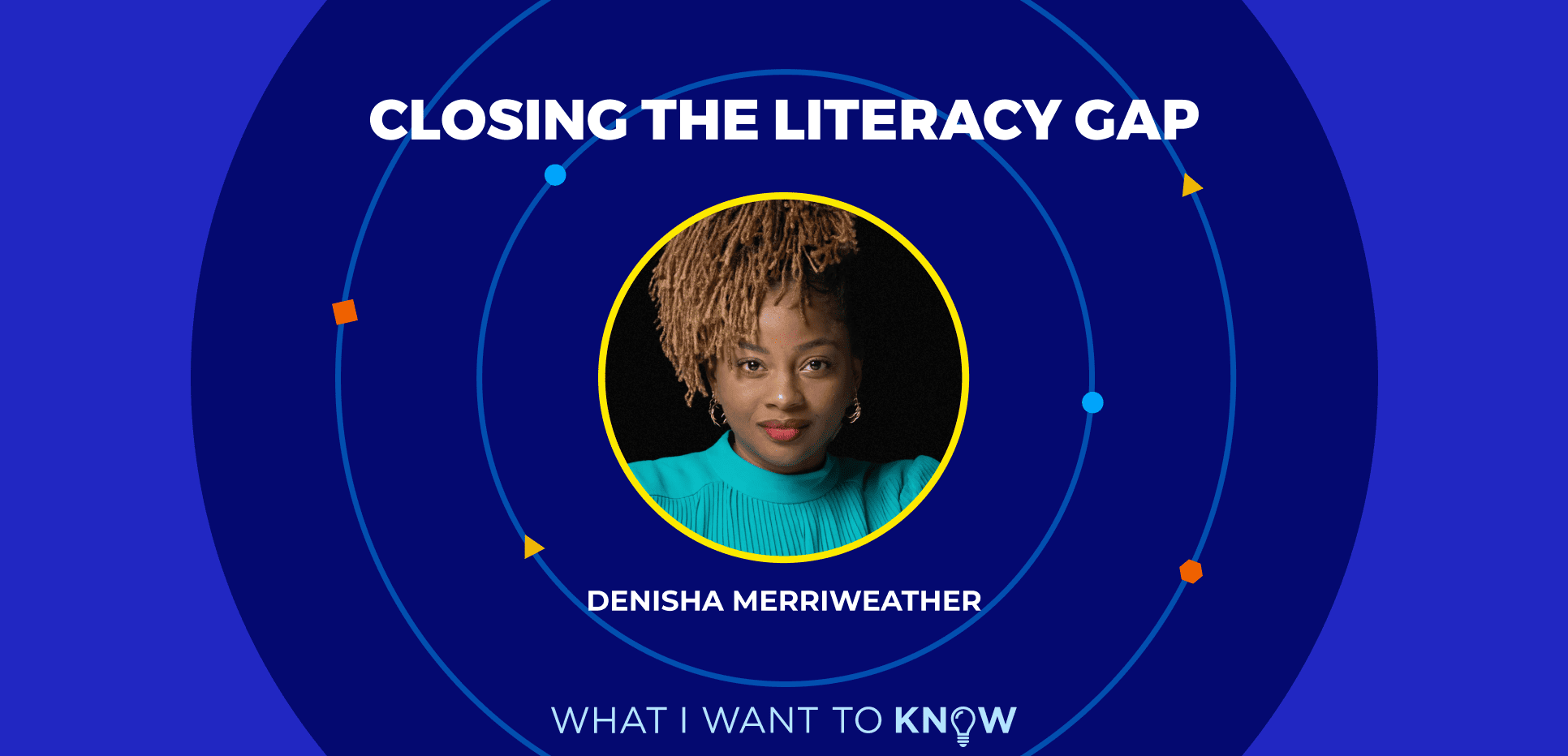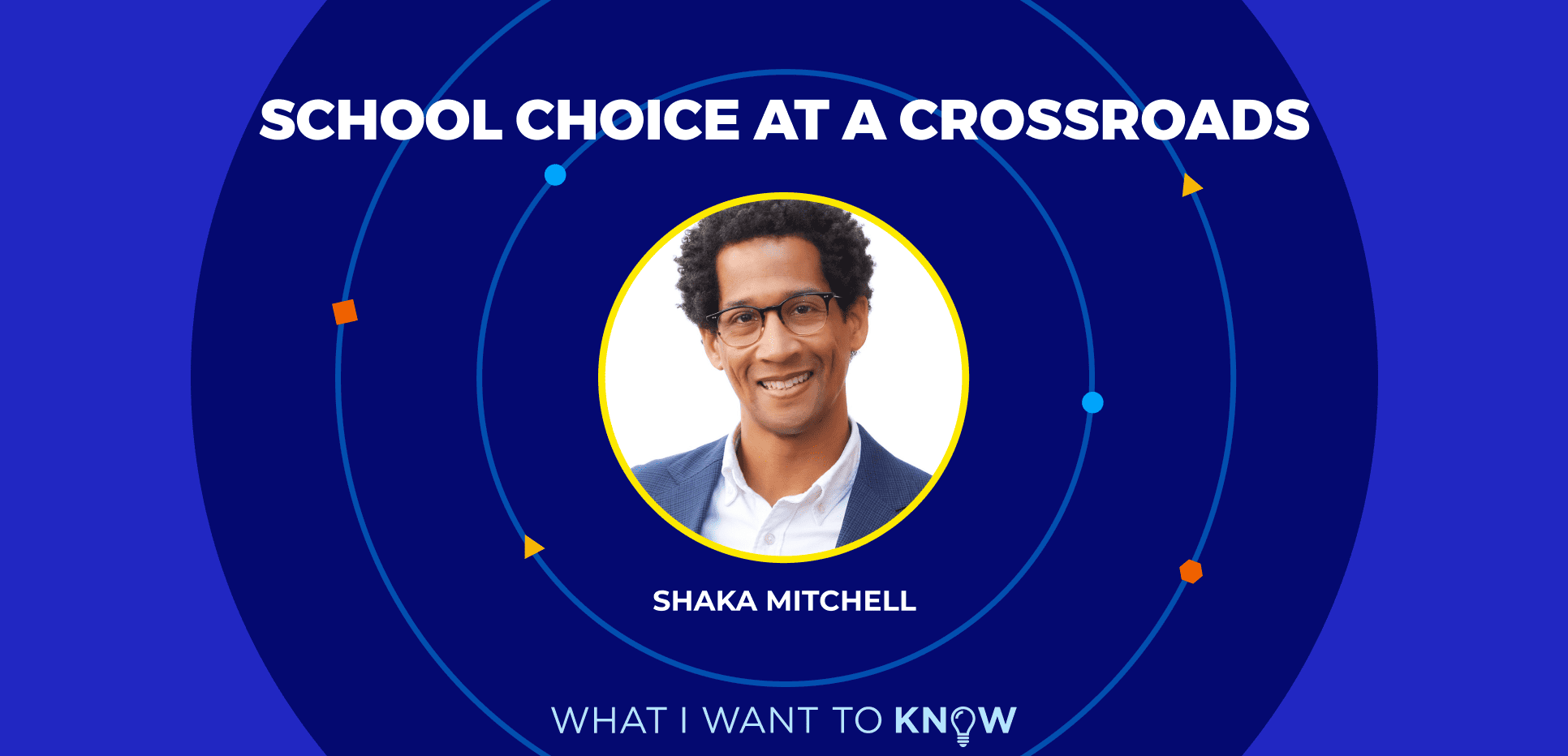When it comes to bullying, one of the most heartbreaking statistics is that 40 percent of victims believe they will be bullied again. What can we do to break the cycle? How should parents, teachers, counselors, and administrators respond? And what can families do when they feel their concerns are not being addressed?
In this episode, Kevin speaks with Dorthy B. and Conway Brooks, a student and her parent, who experienced bullying. They’re sharing their story to help us understand where we are falling short and inspire us to do better.
Listen to the Full Audio
Listen on: Apple Podcast, Spotify
Transcript
Kevin: Conway Brooks and his daughter, Dorthy, have experienced bullying firsthand. And when teachers, administrators, and even the local school board wouldn’t help, they took matters into their own hands. The Brooks’ found a solution outside the traditional public school system. And today, Dorthy isn’t just thriving academically and socially, she’s stepping up to help other victims of bullying turn the corner as well. They’re with us today to share their story, help us understand where we’re falling short, and inspire us to do better. Conway and Dorthy Brooks, thank you for joining “What I Want to Know,” and I’m really excited to have you both on to talk about a challenging issue, in that of bullying. But first, how old are you, Dorthy, by the way?
Dorthy: I am 12 years old. I’m turning 13 this year.
Kevin: Well, congratulations. I wanted to ask you about your passion, because when I was reading up on you, country western ballroom dancing, you are a three-time world champion.
Dorthy: Nine-time world champion.
Kevin: Nine times. Nine times? What’s it like for you, Conway, as, you know, a parent. You have to go to a lot of shows and travel. And how is that?
Conway: We do a lot of travel. Her pros right now are based out of Atlanta, so we drive back and forth about once every other week, and competitions are about six a year. We just got back from Chicago and Nashville, two competitions in the last month. And being part of ALVA and Stride, Dorthy was doing her classes, had her headset on in the backseat of the car, because we just turned on Wi-Fi with our phone and let her do the classes all day while we were driving to Chicago.
Kevin: Well, I tell you, Dorthy, I admire you. I’m gonna look at all your YouTube. I wanna see the beginning. I wanna the growth. I wanna see the moves, and so, I’m gonna check all of that out. But let’s go to this tough subject of bullying. First of all, it takes a lot of courage to talk about this. I hope you know that by sharing your story, you actually are helping a lot of kids that otherwise would suffer in silence. So, when did you first feel you were being bullied?
Dorthy: It was around kindergarten and first grade where it started.
Kevin: And how did it start? What happened to you?
Dorthy: In my classes, I would start being blamed for things that I had nothing to do with. I would tell the teacher I wasn’t doing any of these things and she never believed me. She always believed all the other children.
Kevin: And do you know the reason why you were bullied?
Dorthy: I think race, and me being different from most of the people in my classes is something to do with it.
Kevin: Did you also find that you were being treated differently than the other kids? Like, would they have parties and not invite you, or would you… they not want to hang around or play with you? Did other things flow from that?
Dorthy: I don’t remember anyone excluding me most of the time, I just remember being blamed. And then every once in a while, if I would ask if they would wanna interact with me, like if we were doing recess or something, I would just get excluded. But that was every once in a while.
Kevin: Can you describe how it all made you feel?
Dorthy: It made me feel very sad and frustrated most of the time, because I couldn’t figure out why it was happening.
Kevin: Yeah. And Conway, from your end, you could tell that there was a personality change.
Conway: Yeah. I mean, we could definitely see it in her. It would take her a little bit of time after getting home from school to kind of reset into her normal self. And actually, that’s where dance kind of came into a helpful outlet for her. It gave her a way to smile again. Go do something she felt was fun with other people, and do the ballroom dance just allowed her to flow, allowed her to move, and work out some of that anxiety and loosen back up to by the end of the day become our Dorthy again.
Kevin: Dorthy said that she had found the teachers weren’t responsive. I am assuming you had conversations with teachers, administrators…
Conway: All the way up to the board.
Kevin: So, walk me through that. I mean, who did you first talk with, and then how did that go, and then where’d you go next? I think parents wanna know that.
Conway: Well, initially, we went to the teacher. One of them was the librarian from the before school, before the first bell, and they might have to wait a little bit. She was assigned to be in the library. We’d try and talk to the teacher or some of the other administrators. The vice principal was one we went to multiple times, and got no, satisfaction is one word, but got no belief from them that it was even happening. “But that doesn’t happen in our school. That doesn’t happen in our school. We do the anti-bullying campaign.” I’m like, “Well, you may do the campaign, but you’re not living what you preach. Your teachers are over here part of it.” And we’ve had similar problems in the high school with her older sister, by one of the teachers actually knocking books off her desk every couple of days. When I went to the school board, some people I knew were there. My mom had taught for over 30 years in this system. She tried going in, she couldn’t get satisfaction. She was furious. And this was people she had worked with at the same grade levels in one of the other schools in the system. And it’s gonna be very frustrating as a parent. You sometimes go to this and you will not get that satisfaction. You will not get even the acknowledgment that it’s happening, because if they acknowledge it’s happening, then they admit they have a problem. And a lot of these administrators don’t want to.
Kevin: You know, there’s a phenomenon that a lot of parents complain about. And by the way, it’s not in every school district. It’s not in every school.
Conway: Correct.
Kevin: But this idea of closing ranks, where folks sort of, to your point, they say there’s not a problem, when a parent or a child knows there’s a problem. What did you feel you needed to do in order to address a problem that people were telling you didn’t exist?
Conway: We had looked at several homeschool programs, and I didn’t like that there was no structure to them, and neither did my wife. So we were looking around, and we found Alabama Virtual Academy, which is the Alabama school for Stride. We liked the fact that you had the full structured program, that they had to follow certain state criteria and curriculum, but it didn’t have to be in the brick and mortar. And what we had learned with Dorthy is that she was able to do more without having to just sit there bored all day, and so we were able to do the work with her, and not have her waste as much time. But as we were finding that, that was something we really needed, was some way for her to fit her, and to find that solution, which is something that allowed structure, but did not allow the time for people to be bored and have to do things like bullying or form cliques or whatever, by just having all that free time some brick and mortar schools have.
Kevin: So, the solution that you ended up implementing was removing her from that school system?
Conway: Completely. And my mother was furious. Like I said, she had taught that system for over 30 years.
Kevin: So Dorthy, let me ask you this. Did you find…I mean, it sounds like this is the case, but I do wanna hear from you, did you find that changing schools and getting into the virtual program, getting away from the brick and mortar, that it benefited you?
Dorthy: Yes. I think it did a lot. First of all, the teachers, they were able to help me with things if I had problems. My grades have gone up substantially. It’s a lot easier for me to do things on my own time if need be.
Kevin: I’m assuming, Conway, that part of it is her schedule just with the country western ballroom dancing. Sounds like that she’s got a schedule like a professional athlete.
Conway: But she still makes time to get to do the Skype calls on the phone with friends from class.
Dorthy: Skype?
Conway: Well, I’m sorry, I’m older. Whatever you…video calls with her friends from classes. She’ll do her dance lessons at home, her at-home drills and everything in the ballroom so that she can go play after her friends from brick and mortar get out. I mean, it doesn’t slow her down at all.
Kevin: So, your solution worked. You were able to get her in another school, but Conway, there are a lot of parents out there that, through no fault of their own, because circumstances they can’t control, they cannot remove their child from a toxic, bullying environment. If a child has to stay, and a parent has limited options, what kind of advice would you give them in terms of how they can make a situation tolerable? What do they need to do?
Conway: You may not understand because joking about age and stuff, we don’t know quite all the same ways that they bully each of other, whether it’s online, in person, or any of that. If you’re the parent, you’ve gotta get involved. You’ve gotta be there. You’ve gotta be willing to put your foot in the door and go talk to the teachers. Stand up for your child, because that is your job.
Kevin: One thing that the experts talk about who have looked at bullying over the years, and particularly bullying in this age of social media, which is a whole different level, they talk about the importance of training. And training not just for teachers, but for counselors, staff, everyone. Do you know whether or not in the previous school there was training around bullying? I know that you said they had anti-bullying. And how important do you think that would be in terms of helping?
Conway: Everyone that I’ve been involved with, the high school from our older daughter, and Dorthy’s elementary school, yes, they have the anti-bullying campaigns. All the teachers rallied behind, saying “We took the online class,” or, “We sat there for two hours afterwards. Yay, we’re fixed.” The difference is, I think a lot of times, they don’t go forward with the actual implementation of everything. Just because you attended a class or a lesson or an online seminar doesn’t mean you’re actually following the principles of what you’re supposed to be. And that’s the hard part, I think, for a lot of parents is, you know they’ve had this training, you know they’ve had these certifications, experts come in and tell them, “Do it.” Well, that’s all great if they’re not going to implement the very programs. You can put up a poster on the wall or out in front of the school all day long, “Anti-Bullying Week,” but unless they’re gonna focus on it, not during that week, in the next week, in the next month, in the next calendar year, it doesn’t mean anything if they’re not gonna do it.
Kevin: You’re in Birmingham, Alabama. Let’s say you had an audience with all of the superintendents in the state of Alabama. What advice would you give them in terms of how to stop bullying in Alabama schools?
Conway: I know with Dorthy’s case, the “investigation” into the bullying was done by one of the vice principals, and we never even got a full accountability of what happened, what the teacher’s side of it was, or any of that. We couldn’t get any answers. All right. If there’s been an investigation, if there’s been inquiries, I don’t need to know what happened with another child, but with my own child, I at least should be able to find out what the investigation showed.
Kevin: Yeah. Dorthy, what advice would you give to other kids around the country?
Dorthy: Probably talk to your parents about it, because if anyone’s gonna do something about it, it’s gonna be your parents. Just trust that they’re gonna do something.
Kevin: This is what I really wanna know. Has the experience that Dorthy went through given her a greater sense of self?
Conway: Through dance, and through this experience, she has changed. But she’s still the kid that wants to go running up and hug you and smile. And when you see this smile on the dance floor, people melt. I mean, she’s got more…we call it a dance family. She’s got more extra grandmothers, grandfathers, aunts, and uncles that wanna make sure she’s taken care of at events. They’ll go buy her coffee or something behind my back, give her treats and stuff, but she’ll get on the dance floor, and she’s willing, at 10, 12, about to be 13, she’ll walk up to world pros and masters and say, “Hey, can we dance?” And next thing you know, they’re dancing on the dance floor during one of the breaks at the competitions. By finding something that suits her, she’s developed a confidence that glows, and its shows. And a lot of people even talk about that she’s transformed into something bigger now, and more mature, because we’ve given her those opportunities, we’d like to think, and let her move at her own pace on it.
Kevin: Good for her. Dorthy, we’re very proud of you. I’m so glad you’re enjoying school and your dancing competitions, and we really wish you the best. Conway, thank you also for your support of your daughter, and for speaking to America about this issue. We appreciate you both joining the show.
Dorthy: Thank you.
Conway: Thank you.
Meet Dorthy B. and Conway Brooks
Conway Brooks and his daughter Dorthy have experienced bullying firsthand. When teachers, administrators, and even the local school board wouldn’t help, they took matters into their own hands. The Brooks found a solution outside of the traditional public school system. Today, Dorthy isn’t just thriving academically and socially. She’s stepping up to help other targets of bullying move forward and flourish, too.







